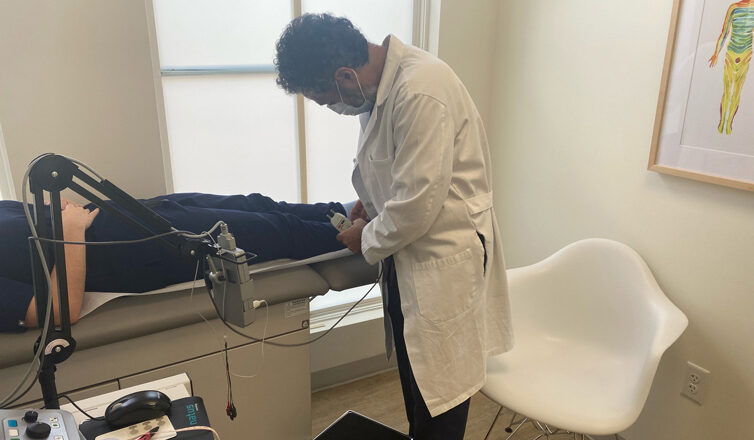Nearly 3 million people in the world, including 150,000 in the United States, have Charcot-Marie-Tooth Disease (CMT), a group of inherited disorders that damages the peripheral nerves that transmit information between the brain and the rest of the body.
Also called hereditary motor and sensory neuropathy, CMT can result in smaller, weaker muscles and causes progressive loss of function and sensation in the hands, arms, legs and feet.
CMT is the most common inherited peripheral neuropathy. It can be passed on from generation to generation and can also occur as a new or spontaneous mutation.
Symptoms of CMT include:
- Muscle pain and weakness
- Inability to lift the foot at the ankle, known as footdrop
- Frequent tripping or falling
- Hand tremors
- Cold hands and feet
- Nerve pain
- Chronic fatigue
- Numbness
- Curled fingers or toes (hammertoes)
- Muscle atrophy in legs and arms
- High arches
- Awkward or higher than normal step
- Breathing difficulties
How do you treat Charcot Marie Tooth Disease?
CMT is challenging to treat because the disease is progressive in a way that limits mobility. There is currently no approved cure for CMT, but innovative genetic therapies are promising since they have been useful in treating other diseases.
In the meantime, Austin Neuromuscular Center (ANC) offers management for CMT, including pain control treatment, progression assessment, mobility assessment, fall risk assessment and prevention, and contracture assessment and prevention. We also provide coordinating care as needed, including physical therapy, orthotics prescription, braces and other assistive devices.
This is a hereditary condition and ANC offers genetic counseling and guidance and often treat multiple patients within a single family.
Beginning treatment early is important. Early treatment may delay or reduce nerve degeneration and muscle weakness before it progresses to disability.
Dr. Yessar Hussain said, “Most CMT patients I see are very active and motivated. These patients do their best to prevent the disease from impacting their daily living.”
A Heredity Neuropathy Foundation Center of Excellence, ANC is committed to research advancement and the best care possible. We are currently participating in an ongoing Phase III clinical trial assessing the efficacy and safety of the drug PXT3003 in patients with CMT Type 1A.
ANC is Helping to Raise Awareness
Dr. Hussain and the ANC team are part of the Charcot-Marie-Tooth Association and are excited to raise CMTA awareness and funds for the association on November 20 at the first Austin WALK4CMT.
“I always want to help in any way, to manage symptoms, not just diagnose disease, but I feel my help is limited and we need more research and treatment modalities,” said Dr. Hussain.
For more information and to register for WALK4CMT, visit cmtausa.org/texaswalk.
For more information about ANC, contact us at (512) 920-0140. And don’t forget to follow us on Facebook, LinkedIn, Twitter and Instagram for important updates.
